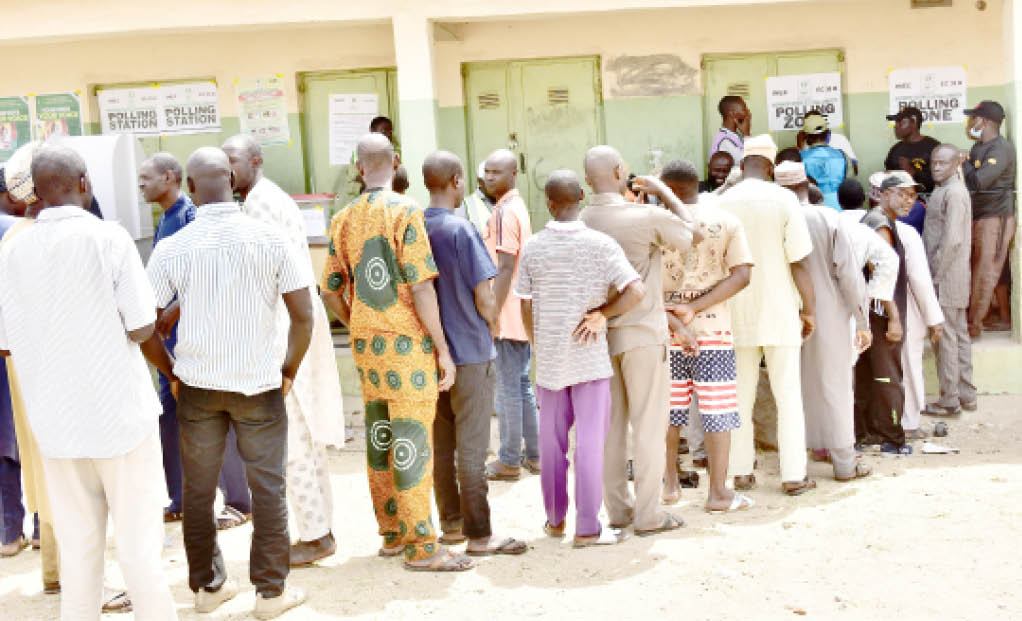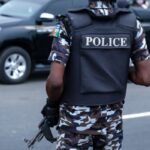By Nick Dazang
For stakeholders in the electoral process, the Federal Capital Territory (FCT) Area Council elections were expected to accomplish, at least, four salient objectives, thereby putting them at par with, if not surpassing, the high water mark Edo and Ondo governorship elections.
They were expected to serve as an antithesis and uplifting departure from the conduct of the Anambra governorship election of November 6, 2021, which was defined by, and marred with, violence; malfunctioning of the newly introduced Bimodal Voter Accreditation System (BVAS); dereliction of election duty by a large number of ad hoc staff; and late opening of polls.
The FCT Area Council elections were expected to provide an auspicious opportunity to further test run the BVAS in a comparatively tranquil election and to perfect its performance. They were expected to be a remarkable improvement generally on the conduct of elections by the Independent National Electoral Commission (INEC). And they were expected, most importantly, to provide an inkling and a foretaste of the Ekiti and Osun governorship elections scheduled for June 18 and July 16, respectively, and indeed the 2023 General Elections.
Alas, by early afternoon of that Saturday it was crystal clear that the elections had come short of the aforementioned expectations. Most Polling Units across the six Area Councils opened late, in spite of the fact that voters had thronged them as early as 8am. There was low voter turnout in the City Centre, Garki, Wuse and the high brow districts of Asokoro and Maitama. There were many reports of the malfunctioning of the BVAS especially in the rustic areas outside the Abuja Municipal Council Area (AMAC), thereby inspiring a lot of tension and apprehension by voters. There were widespread incidents of vote buying and trading.
Arising from its conduct, the questions which stakeholders are most likely to ask are: Why could the polls not open on schedule even at districts that are proximate to the FCT INEC office at Area 10, Garki? Were the SUPER RACs (Clusters of Registration Area Centres), which were supposed to facilitate early deployment of poll officials not used or activated? Were the efforts of the Commission to deploy on time scuppered by the National Union of Transport Workers (NURTW) and National Association of Road Transport Owners (NARTO), whose vehicles were supposed to convey poll officials and materials on Election Day?
In spite of the co-option of the Economic and Financial Crimes Commission (EFCC) and the Independent Corrupt Practices and Other Related Offences Commission (ICPC) to the Inter Agency Consultative Committee on Election Security (ICCES), why did the elections transform into bazaars where votes were brazenly traded and in the full glare of the security agencies? Why did voter apathy attend the elections beyond the pale? If so many challenges could visit elections in a placid FCT with a mere six Area Councils, what will happen in a general election scenario where elections are conducted across 774 Local Government Areas (LGAs), some of which may be bedevilled with insurgency, banditry and kidnapping?
Ahead of the Ekiti and Osun governorship elections and the 2023 general elections, INEC must answer these legitimate and pertinent questions as well as squarely address them. Logistics challenges cannot perennially define and dog our elections. Also, elections cannot continually be delivered in staccato fashion with its ebbs and flows. Once elections are characterised by flips and flops, the tendency is for the Election Management Body (EMB) to find it difficult to sustain the empathy and robust support of its critical stakeholders. The way to go, therefore, is to tread a consistent trajectory of excellence: Once the commission raises the bar, it should not rest on its oars: It should continue to raise the bar higher and not allow it to go downhill.
Mercifully, on February 15, three days after the conduct of the Area Council Elections, the INEC Chairman, Professor Mahmood Yakubu, came clean by acknowledging the challenges, particularly with the BVAS. At a meeting with Resident Electoral Commissioners (RECs), Professor Yakubu assured that the challenges with the BVAS were being promptly addressed.
While the Commission works assiduously to optimise the functionality of the BVAS with respect to accreditation of voters, it must pay serious attention to the training of its ad hoc staff who are members of the National Youth Service Corps (NYSC). Training should not only be rigorous, it must be hands-on, practical and scrupulously supervised. There is no doubt that these ad hoc staff had played salutary roles in the conduct of previous elections. But by and by, they had become complacent, indifferent and lost their initial focus and enthusiasm.
The Commission should continue to engage with, firm up and refine its Memorandum of Understanding (MoU) with NURTW and NARTO. Some of their members, instead of reinforcing INEC’s logistics efforts by turning up on schedule often report late. Others provide rickety vehicles or less than the requisite number. This results in Polling officials and security agents being stranded and arriving late at the Polling Units.
The commission should also re-engage with the ICPC, EFCC and the police in respect of vote-buying and trading which have become rampant and which threaten the integrity of our elections. If the three can apprehend and bring to book perpetrators of vote-buying in the course of the conduct of the Ekiti and Osun governorship elections, such arrests and punishment meted out will send strong signals to would-be perpetrators in the 2023 general elections.
But beyond this, the commission as the driver of our elections must educate voters about the violence vote-buying and trading visit to the electoral process and good governance. Voters should be made to understand that once they sell their votes, they lose their right to hold political office holders to account or their right to demand good governance.
Above all, the commission must view the challenges thrown up by the FCT Area Council elections as a call to arms. It must proceed, with a renewed sense of urgency and resolve, to reclaim the glorious station it arrived at in the aftermath of the Edo and Ondo governorship elections. This is possible given its chequered pedigree, its resilience and its proven capacity to bring itself back into reckoning from the brink of failure.
Nick Dazang is a former Director of Media and Public Enlightenment at INEC




